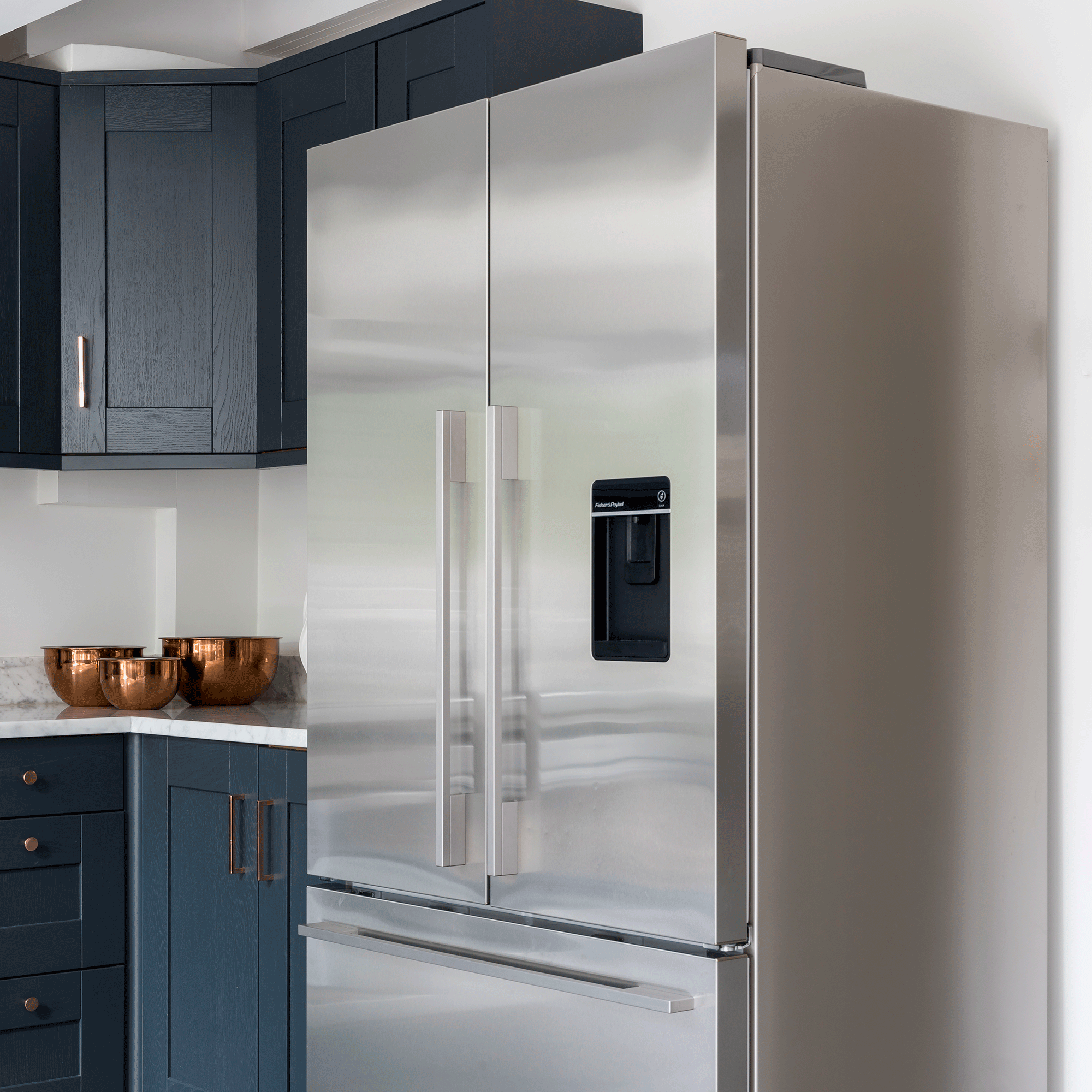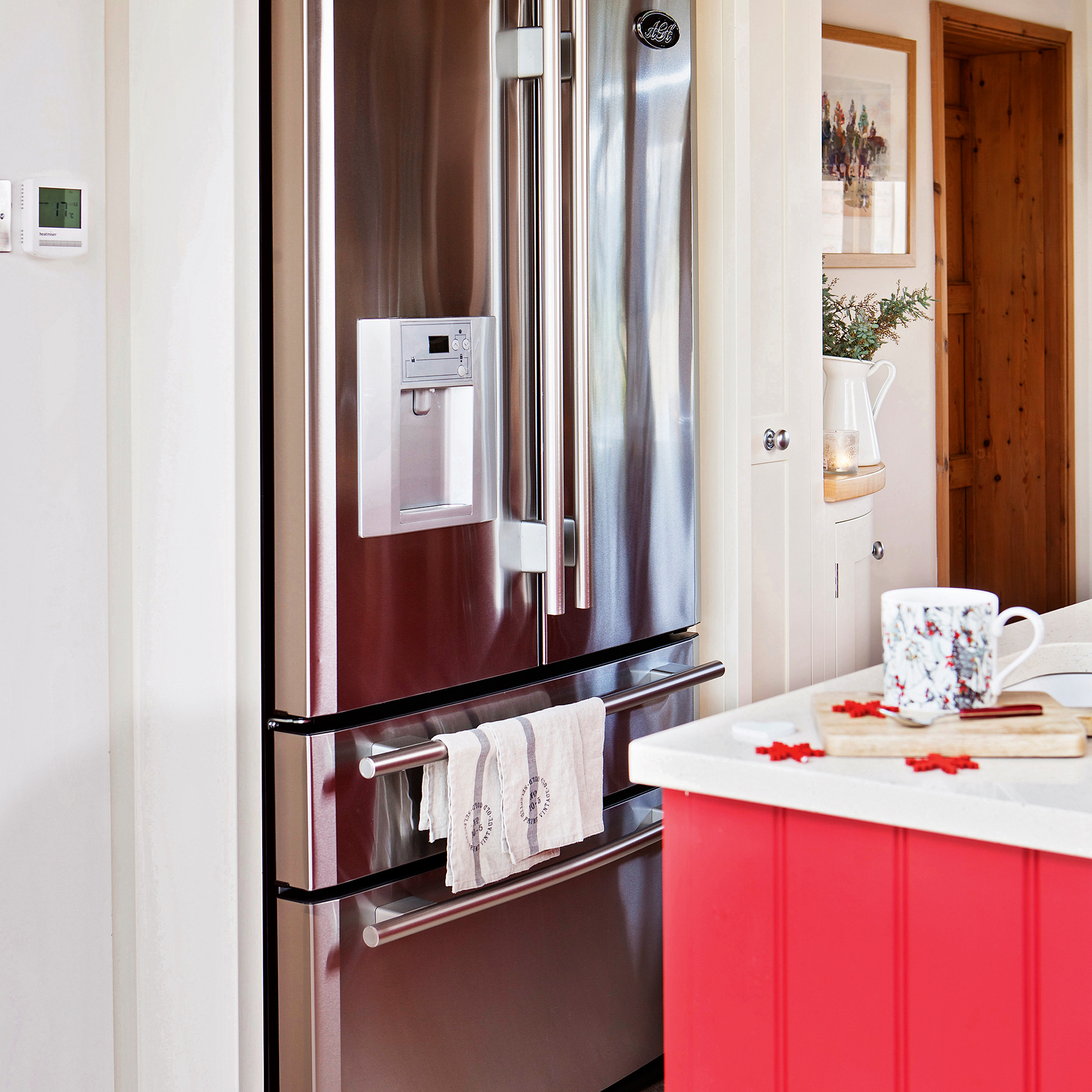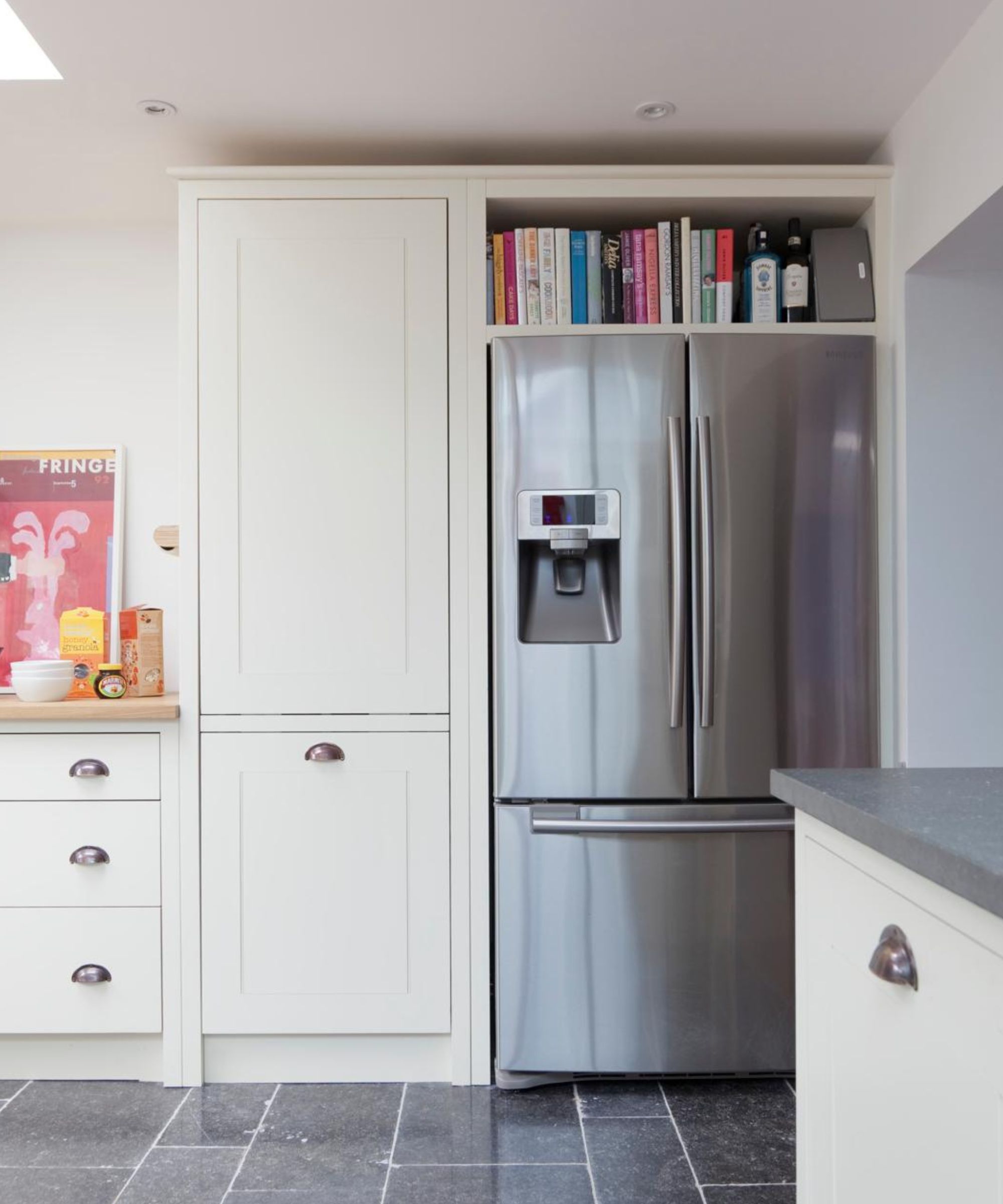
Let's face it, defrosting the freezer is never a job any of us want to do, but it is important to know how often to defrost a freezer to keep running as efficiently as possible.
The danger of not defrosting your freezer often enough is that it becomes less efficient and uses up more energy, ultimately making it more expensive to run and risking spoiling any food you have stored in it. While it might seem like a painful task there are plenty of tricks for how to defrost a freezer to get the job over as quickly and easily as possible.
'Not defrosting your freezer on a regular basis will lead to it becoming less efficient and therefore expensive as it isn't able to cool down the cavity as fast and efficiently as designed,' explains Natasha Sweet, product specialist at AEG. 'Failure to defrost your freezer properly and regularly could also lead to food waste and reduces the quality of your produce.'
How often should you defrost a freezer?
If you're the type of person who leaves defrosting the freezer until there's a huge build-up of ice this is one of the biggest defrosting mistakes you can make. It really can help to get into a regular habit of defrosting it before it causes any major issues.
'Typically, you should defrost your freezer when the ice build-up is around a quarter of an inch thick – or every three to six months,' explains Emily Barron, cleaning expert at Property Rescue. 'Check to see whether you have a self-defrosting freezer first, as these have programmes that operate automatically. Whatever type of freezer you have, it's best to manually check the condition to ensure optimum working order.'

What happens if you don't defrost a freezer?
There are several problems that can arise if you don't defrost your freezer on a regular basis:
1. It reduces energy efficiency
With energy bills still high for many people, making sure your freezer is running efficiently can help to keep costs down. 'Accumulated ice in the freezer can act as an insulator, making the appliance less energy efficient,' explains Rachael Kiss of Alliance Online. 'The compressor has to work harder to maintain the desired temperature, leading to increased energy consumption and higher electricity bills.'
2. Freezer space is limited
One of the more obvious problems with not defrosting a freezer is the bigger the ice build up, the less space for food. 'If ice build up takes up space inside the freezer, it reduces the available storage capacity,' adds Rachael. 'This means less room to store frozen foods.' If build up is particularly bad, it can also prevent the door from shutting properly.

3. Poor temperature control
With a build up of ice, your freezer will have to work harder meaning it's harder to maintain the correct temperature. 'Ice buildup can interfere with the freezer's ability to maintain a consistent and uniform temperature,' explains Rachael. 'This means uneven freezing can lead to food being spoiled.' There's nothing worse than when you have a freezer full of food but the freezer has affected the quality.
4. Damage to the freezer
There is also a risk of causing damage to the freezer itself. 'In very severe cases, neglecting to defrost a freezer for an extended period of time can lead to mechanical issues,' warns Rachael. 'The excessive workload of the compressor may cause it to overheat, reducing the lifespan of the appliance.' So, by taking time to regularly maintain your freezer you can help to make it last longer too.

FAQs
Does defrosting a freezer make it work better?
By defrosting your freezer, you're helping to keep it in top condition so it works at peak performance and the perfect temperature for freezing food.
'Over time, ice build-up can affect the freezer's cooling ability, resulting in uneven temperatures, and potentially spoiling food, explains Lucy Baxter, group marketing manager at Bosch. 'Removing the frost allows the freezer to circulate cold air more effectively, ensuring that your food remains fresh and frozen at the optimal temperature.'
How often does a freezer go through a defrost cycle?
To keep your freezer working at its best, check for signs it needs defrosting on a regular basis. Nathan Newlove, cooling product manager at Haier Europe. suggests 'when the ice build up on the walls is 5-6mm thick' it's time to defrost your appliance.
The question of how often you need to defrost your freezer comes down to the type of freezer you own. 'The frequency of defrosting your freezer depends on factors such as the type of freezer and frequency of use,' explains Lucy. 'As a general rule, manual-defrost freezers should be defrosted at least once a year. On the other hand, self-defrosting freezers have a built-in mechanism that automatically melts the ice, so they typically only need defrosting every few years.'
Ultimately, if you want to make life easier, when it comes to buying a new freezer, take time to find a model that works for you. If you don't want to spend lots of time defrosting a freezer, look for an appliance with a self-defrosting function. There are also plenty of ideas on how to defrost a freezer quickly to make the job easier.
If you make sure you have defrosting your freezer on your regular chore list we promise the job will be so much easier, than waiting until it's filled with ice.


.png?w=600)




